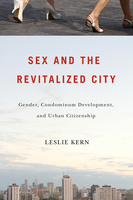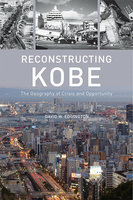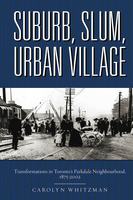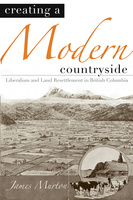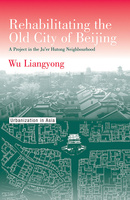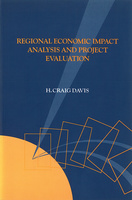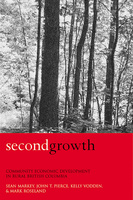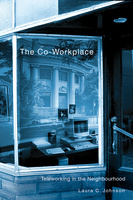Cities for People
Renowned architect and urban planner Jan Gehl explains the methods and tools he has used to reconfigure unworkable cityscapes into safe and sustainable cities for people – something he has helped do in Copenhagen, Melbourne, and New York City.
Principles of Brownfield Regeneration
Cleanup, Design, and Reuse of Derelict Land
The first book to provide an accessible introduction to the design, policy, and technical issues related to redevelopment of "brownfields" – idle property whose development or improvement is impaired by contamination.
Speaking for a Long Time
Public Space and Social Memory in Vancouver
This vivid account of the creation of three public monuments in Vancouver’s Downtown Eastside offers unique insights into the links between power, public space, and social memory and asks us to reconsider the nature and role of civic art.
Seven Rules for Sustainable Communities
Design Strategies for the Post Carbon World
If widely used, these rules would lead to a much more livable world for future generations – a world that is not unlike the better parts of our own.
Sex and the Revitalized City
Gender, Condominium Development, and Urban Citizenship
By examining urban revitalization in Toronto from the perspective of women, this book reveals the neoliberal agenda that lies beneath the rhetoric of condo ownership.
Reconstructing Kobe
The Geography of Crisis and Opportunity
Explores the decade-long challenge to reconstruct Kobe after the Great Hanshin Earthquake of 1995.
Building an Emerald City
A Guide to Creating Green Building Policies and Programs
Thinking Planning and Urbanism
By exposing the details of the Dundas Square area in Toronto, this book shows how city planners can be overwhelmed by the machinations of money and power, and why the planning field is ill-equipped to find creative solutions for post-industrial problems.
Suburb, Slum, Urban Village
Transformations in Toronto’s Parkdale Neighbourhood, 1875-2002
A history of Toronto’s Parkdale neighbourhood, spanning three eras of suburban and urban development and examining the controversial planning practices that shaped it.
Expansive Discourses
Urban Sprawl in Calgary, 1945–1978
A groundbreaking study of how and why the interactions between local government and land developers in Calgary after the Second World War created a city that exemplifies urban sprawl.
Creating Vibrant Public Spaces
Streetscape Design in Commercial and Historic Districts
Cities as Sustainable Ecosystems
Principles and Practices
Creating a Modern Countryside
Liberalism and Land Resettlement in British Columbia
The Option of Urbanism
Investing in a New American Dream
Shows how the American Dream is shifting to include cities as well as suburbs and how the financial and real estate communities need to respond to build communities that are more environmentally, socially, and financially sustainable.
Rehabilitating the Old City of Beijing
A Project in the Ju'er Hutong Neighbourhood
Wu Liangyong offers a new direction for the planning and development of China's capital.
Chinatowns
Towns within Cities in Canada
From instant Chinatowns in gold- and coal-mining communities to new Chinatowns which have sprung up in city neighbourhoods and suburbs since World War II, this is definitive history of Chinatowns in Canada.
Tales of Two Cities
Women and Municipal Restructuring in London and Toronto
In this thought-provoking book, Sylvia Bashevkin examines the consequences of divergent restructuring experiences in London and Toronto.
Second Growth
Community Economic Development in Rural British Columbia
A look at historical and contemporary restructuring, linking development of rural communities with resource development and Aboriginal marginalization.
The Vancouver Achievement
Urban Planning and Design
This first comprehensive account of contemporary planning and urban design practice in any Canadian city examines the development of Vancouver's unique approach to zoning, planning, and urban design from its inception in the early 1970s to the present day.
Environmental Land Use Planning and Management
Environmental Land Use Planning and Management is a unique new textbook that presents a diverse, comprehensive, and coordinated approach to issues of land use planning and management and their impacts on the environment.
The Co-Workplace
Teleworking in the Neighbourhood
Borrowing from the experience of cooperative artists' studios, business incubators, and the corner copy shop, this book explains why office infrastructure can be important for productivity as well as the quality of work life.
Planning Canadian Regions
The first book to consolidate the history, evolution, current practice, and future prospects for regional planning in Canada.
Demography in Canada in the Twentieth Century
Focusing on the period from 1913 to 1995, this book offers a social and institutional account of the evolution of demography in Canada.





